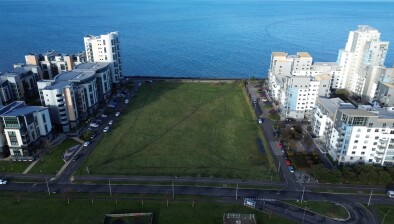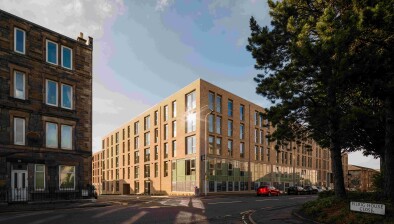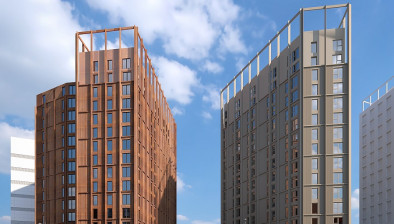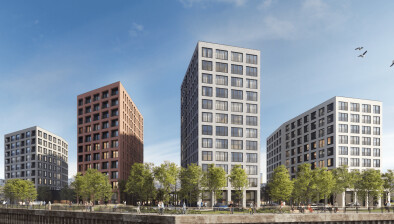Research points to ‘urgent need’ for increased awareness of build-to-rent among MPs
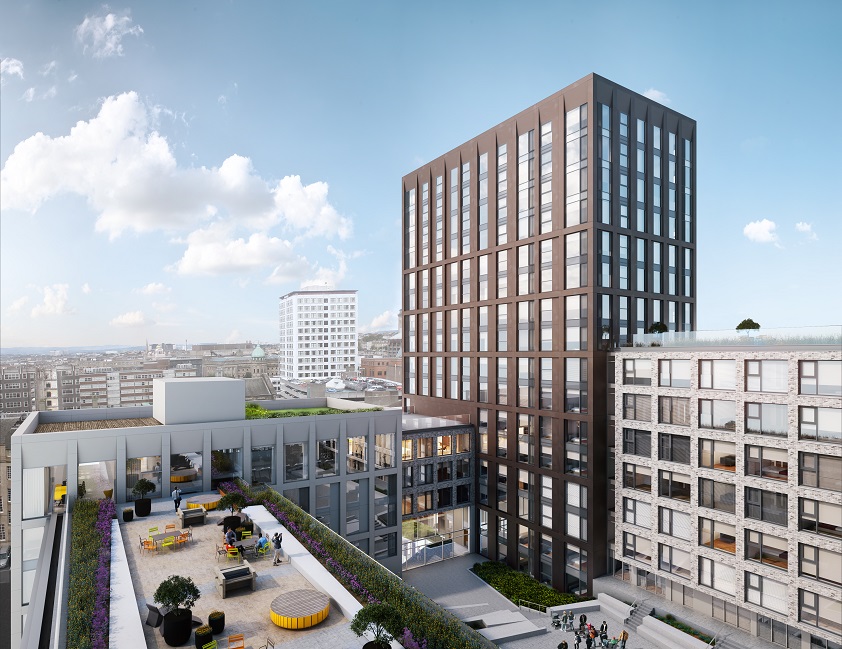
The Holland Park build-to-rent development in Glasgow
Just 11% of UK MPs would prioritise the development of new build-to-rent (BTR) homes in their constituencies despite the demand for rental properties being high, according to new research.
Conducted by communications consultancy Cavendish Consulting and YouGov, the research asked MPs across all parties about their constituency housing focuses and most strikingly, BTR homes ranked only 7th out of eight listed housing options in terms of priority.
Around 63% of Conservative MPs prioritised private sale housing with Labour MPs more likely to prioritise council housing and social rent homes. The survey found that only 14% of Conservatives and 10% of Labour MPs would prioritise BTR homes in their constituency. With the high likelihood of Labour being the next party of government in Westminster, the report said this highlights a huge concern for the sector that needs to be addressed.
While over half of all BTR homes are in London – and with demand for rental properties in the capital remaining high - the research also revealed that not one London-based MP considered BTR to be a top priority.
A number of property developers are investing in BTR homes to provide communities with more options. According to Business LDN, the most common (28%) income band for BTR residents is between £26,000 and £38,000. When MPs of Cavendish’s survey were asked what they think those living in BTR homes earn, 39% believed the average income was lower than this sitting between £20,000 and £29,999. The remaining MPs (61%) selected a wide mix of incomes ranging from under £20,000 to £100,000, this disparity suggests that most MPs aren’t aware of the affordability of a BTR home.
Max Camplin, executive director at Cavendish, said: “Our research shows there is clearly a lack of prioritising the development of BTR homes at a national level. Every day there are stories emerging from the private rented sector – where people are paying expensive rent for a property that doesn’t meet their needs. Not only is this impacting them financially, but also their mental and physical wellbeing.
“Compared to some of the rental market which can be poor quality and sometimes badly managed, BTR provides good quality, safe, and sustainable rented homes to suit a wide range of income levels. We know that MPs want the best for their constituents and communities, therefore there’s clearly more the property industry can do to communicate the benefits of BTR.”
Although over half (58%) of MPs expressed support for an increase in BTR homes in their constituencies, a significant portion (one-third) remained uncertain about their stance. This result again highlights a lack of knowledge and the need for clearer communication on the benefits of BTR homes to local communities.
Max added: “It is clear that BTR can play a vital role in addressing Britain’s housing crisis, yet demand still massively outstrips supply, meaning renters across the country are losing out on the benefits of BTR.
“As our research shows, national politicians do not prioritise the sector, with six other housing types prioritised by MPs. The unrealised investment in new BTR homes is damaging to Britain’s housing market, holds back growth, and continues to see too many people renting in unsuitable and poorly managed rental accommodation.
“The sector is still largely misunderstood by policy-makers and decision-makers and greater awareness is needed, particularly as we approach a General Election. All eyes are on the political parties to define their visions to address the lack of housing supply. For the BTR sector, now is the time to address the lack of awareness, tackle the misconceptions, and put the sector at the centre of a housing revolution in Britain.”




